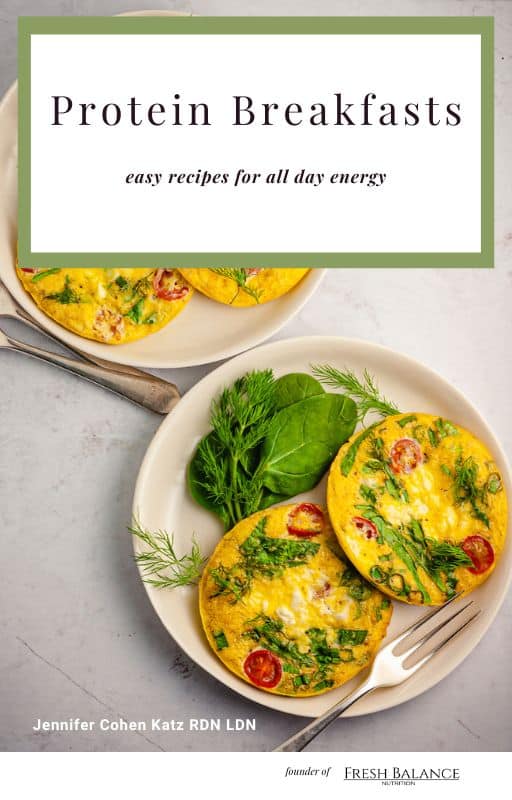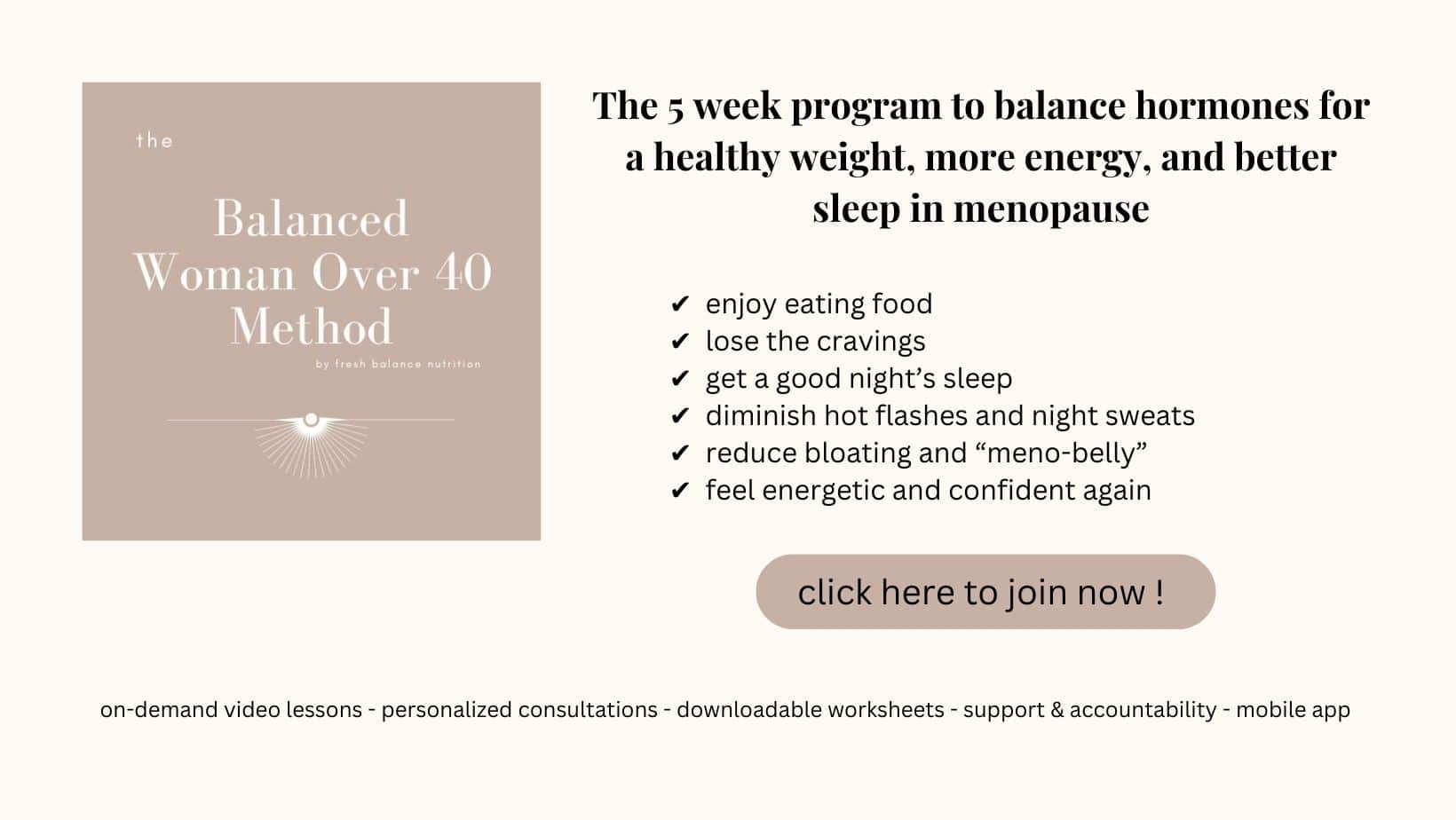Bloating is one of the most annoying symptoms in perimenopause. Is there a way to avoid perimenopause bloating or do we just tolerate it?
What’s going on in there?
We are more likely to suffer from hormonal bloating during perimenopause than in post menopause. During perimenopause, our hormones are fluctuating rapidly. The level of estrogen in our body is higher than progesterone. This estrogen dominance causes our body to retain water – the result is bloating.
In addition, hormones are involved in every body system including digestion. So some of our bloating during perimenopause may be from gas. While our hormones are having ups and downs so is the efficiency of our digestive system. Consider that perimenopause constipation might be contributing to that belly. If food isn’t getting completely broken down, the bacteria in our colon will give it a try and gas may be produced in the effort.

What can we do about it?
- Keep drinking that water. Staying hydrated helps digestion and may help keep you from overeating too. I like to have plenty of filtered water available to keep my favorite bottle filled day and night.
- Get regular exercise. It could be jogging or yoga. Movement helps to encourage the food along in it’s digestive journey.
- Chew slowly. Chewing food prepares it to be worked on by your digestive enzymes. If you are focusing on eating slowly your nervous system can shift to “rest and digest” mode.

- Eat less fat. Estrogen influences the production of bile which is involved in breaking down dietary fat. When this process becomes less efficient, fats are poorly digested and bloating can occur.
- Gluten friend or foe. Many women find they are more sensitive to gluten now that they are in perimenopause. Avoiding wheat food products may be a game changer.
- Got milk issues? Dairy may cause women digestive woes as well. Gas and bloating can result from not having enough of the enzyme lactase available to break down the milk sugar lactose.
- A little support. In some situations probiotics or digestive enzymes can improve stomach bloat. Different strains of probiotics are used to treat specific conditions in the body. Ask a nutrition expert or digestive health physician for advice.
- Suspicious characters. Examine whether caffeine, alcohol, or carbonated beverages might be the source of bloating in your diet.
Balanced Recommendations
To avoid bloating, plan meals with lean protein, vegetables and fruits, whole grains, and small amounts of healthy plant oils. Test your tolerance to gluten by finding alternatives to bread, pasta, wheat baked goods, and other foods made from wheat flour or high gluten grains. Try some dairy alternatives like soy milk or flax milk. If you still need help targeting the culprit of your bloating let’s discuss some strategies. Schedule a free call with me 😉
This post contains affiliate links for products I use and trust. I may receive commissions on purchases at no cost to you. As an Amazon associate I earn from qualifying purchases.








